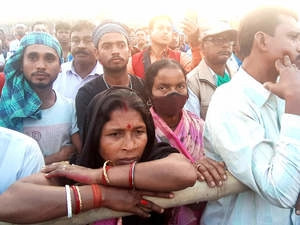In a move that will not in any way affect citizens of India but only illegal migrants, days before the voting for the May 2024 general election takes place, the Central government is set to introduce the Rules of Citizenship (Amendment) Act (CAA) 2019 in the budget session of Parliament that is scheduled for February next year, The Sunday Guardian has learnt.
Official sources aware of the matter told this newspaper that all the work that was needed to be done while taking the inputs from various stakeholders has been done. The political nod has been taken and the rules are set to be introduced in the budget session which will be the last Parliament session before the 2024 general elections begin.
No citizen of India will be affected by its provisions, contrary to the propaganda against it by vested interests, many based abroad and hostile to India. The move is likely to make a substantial impact on the demography and politics in many parts of the country, especially the Northeast and East, including the politically important West Bengal where a large number of illegal migrants will be impacted once the CAA comes into effect.
Several people were affected in violence that occurred in multiple states of India for different reasons including Assam, Delhi, Meghalaya, Karnataka and Uttar Pradesh when the bill was introduced and passed in Parliament in December 2019.
While in one part of the country, the law was opposed on the ground that it would lead to granting of citizenship to “immigrants” and “outsiders”, in other parts it was opposed as it was termed as “discriminating” on the basis of faith.
Neither is factually correct. Several countries have versions of the CAA in order to prevent illegal migrants falsely claiming to be citizens. Among the political bloc that is going to be positively impacted by this is the Matua population of about 3 crore in West Bengal out of which more than 1.5 crore are listed as voters.
The legislation that was passed by Parliament on 11 December 2019, allows citizenship to minorities in specified countries, such as Hindus, Sikhs, Buddhists, Jains, Parsis or Christians from Afghanistan, Bangladesh or Pakistan who came to India before 2015. However, since the rules are yet to be framed, the implementation cannot begin. The bill was introduced in the Lok Sabha on 9 December by Home Minister Amit Shah and on 10 December it was passed, with 311 members voting in favour and 80 against.
On 11 December, the bill was subsequently passed by the Rajya Sabha with 125 votes in favour and 105 votes against it. The Ministry of Home Affairs (MHA), in an affidavit filed in the Supreme Court on 30 November 2022, had stated that the CAA only identifies the foreigners who had taken shelter in India on or before 31 December 2014 due to persecution faced by them in three specified countries (Pakistan, Afghanistan and Bangladesh) on grounds of their religion.
CAA has excluded areas under Sixth Schedule (Tribal Areas in the States of Assam, Meghalaya, Tripura and Mizoram) and areas covered by Inner Line Permit under Bengal Eastern Frontier Regulation, 1873 that is applicable in Arunachal Pradesh, Mizoram and Nagaland. Inner Line Permit (ILP) is an official travel document issued by the Government of India to allow inward travel of an Indian citizen into a protected area for a limited period.
Several state governments including West Bengal, Kerala, Punjab, Rajasthan, Chhattisgarh and Bihar have adopted resolutions against CAA. In Chhattisgarh and Rajasthan, these resolutions were passed when the Congress was in power. However, the same does not hold true now with BJP coming back to power in these two states earlier this month.
Recently, the Central government had sought further extension of time (ninth such extension) from the Parliamentary Committee on Subordinate Legislation for framing the Rules for CAA. Usually, as per norms, the rules are to be framed within six months of the passing of the Act.
The extension has been received till 9th January 2023 in the Lok Sabha and 30 March in the Rajya Sabha As per the current status of the Act, it cannot be made operational unless rules are framed under Section 6B(1) read with Section 18(2) (eei) of the Act specifying “conditions, restrictions and manner” of conferring citizenship to the intended beneficiaries.
Official sources told The Sunday Guardian that a dedicated online portal, that will help those who are eligible to apply under CAA without any state government’s intervention, is already being prepared and is about to go for beta run. The use of the website mode to invite the application was thought to be the best way as it would weed out corruption as has been experienced in the past in several cases of granting of long-term visa.

